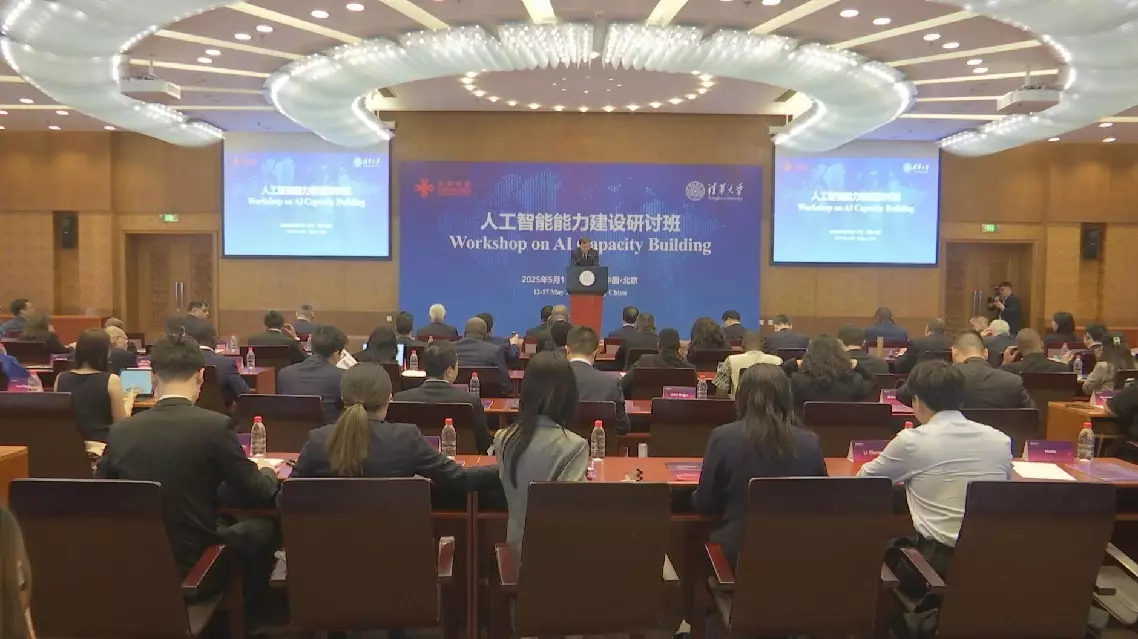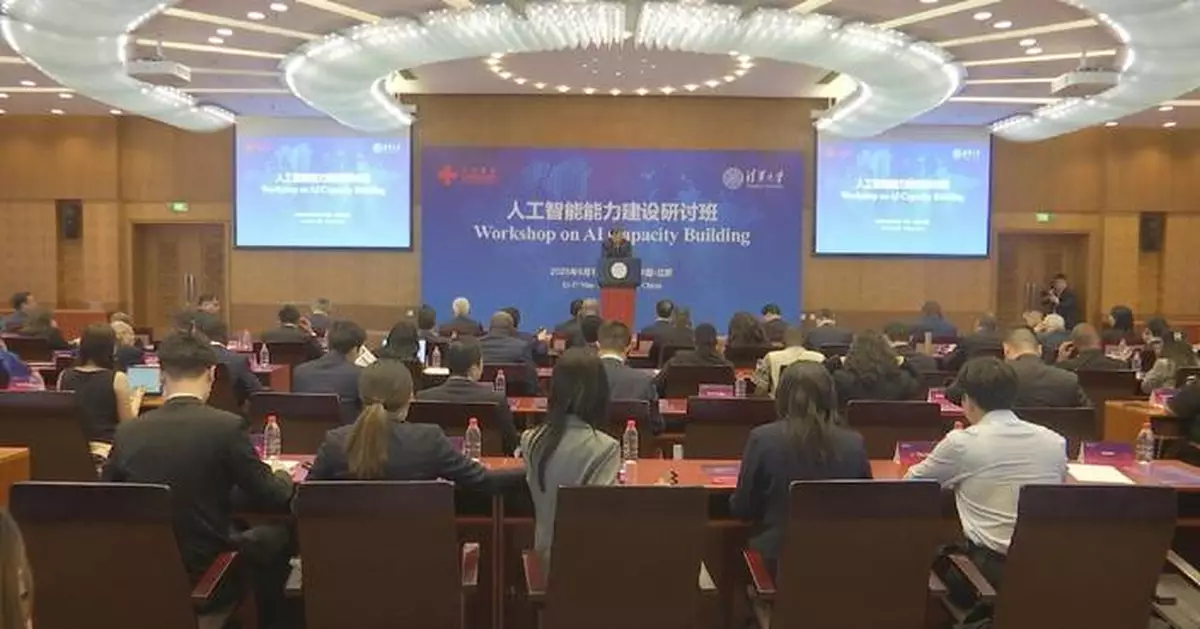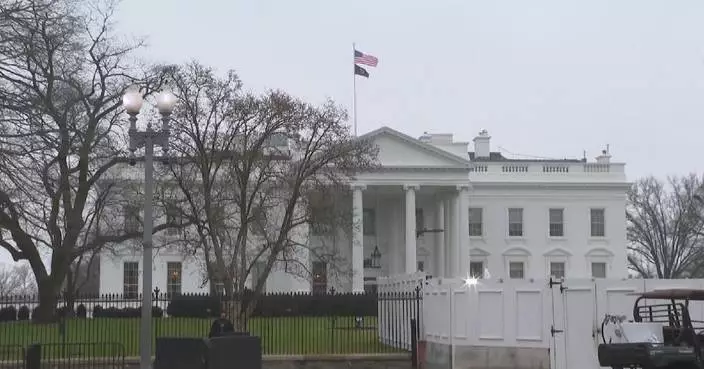The second Workshop on AI Capacity-Building hosted by China's Ministry of Foreign Affairs opened in Beijing on Monday, with the aim of sharing China's AI development experience and promoting the country's Global AI Governance Initiative.
The event was held at Tsinghua University, with officials from the Ministry of Foreign Affairs and the Beijing Municipal People's Government and representatives from international organizations and nearly 40 developing countries in attendance.
At the opening ceremony, Chinese Vice Foreign Minister Ma Zhaoxu said that the rapid development of emerging technologies such as AI has become an important driving force for industrial transformation. He said China has always embraced intelligent transformation, believing that all countries should uphold the concept of a community with a shared future for mankind and make artificial intelligence a truly international public benefit.
"Artificial intelligence is the common wealth of all mankind, not a game for rich countries and rich people. Digital dividends cannot become digital hegemony, and the intelligent revolution should not lead to an intelligent divide. Countries should jointly create an open, fair, and non-discriminatory environment for the development of artificial intelligence, help developing countries strengthen capacity-building, provide low-threshold services for small and medium-sized enterprises and ordinary people, and promote the accessibility of artificial intelligence technology," he said.
In October 2023, China put forward the Global AI Governance Initiative, offering China's support to the adoption of AI on a global scale. In July 2024, China promoted the unanimous adoption of the resolution on strengthening international cooperation in AI capacity-building at the 78th United Nations General Assembly.
Chola Milambo, Zambia's permanent representative to the United Nations, said China has mobilized international consensus on AI development and governance, which benefits developing countries.
"AI presents great opportunities to deal with the core challenges that we face, whether it's climate change, whether it's addressing disease. In Zambia, we have rolled out our digitalization framework strategy as well as an AI strategy. However, we need to translate those strategies into implementable programs. Lack of knowledge is one of the key issues, we also need capacity-building in terms of computer capacity. The human component in terms of the capacities is a core part of the capacity-building. China is a key leader in artificial intelligence, no doubt, it is recognized across the world. Your humility and your generosity to extend this knowledge with other countries in something that will be with us for very long time," he said.
China has also cooperated extensively with BRICS countries, ASEAN members and others in the fields of artificial intelligence industry empowerment and infrastructure construction, and helped Global South countries improve their technological capabilities to bridge the global AI gap.

Foreign Ministry-led AI capacity building workshop opens in Beijing
Chinese President Xi Jinping's New Year message delivered on the New Year Eve has drawn positive responses from scholars and former officials from several countries, who say that the series of global initiatives proposed by Xi have provided fresh momentum for multilateralism and shared development at a time of growing uncertainty.
While the reactions touched on the broader vision outlined in Xi's New Year message, they also focused on the initiatives Xi has put forward over recent years, particularly the Global Development Initiative, the Global Security Initiative, the Global Civilization Initiative and the newly proposed Global Governance Initiative.
Highlighting the significant importance of these initiatives, they have emphasized the need for equality, inclusiveness and a fairer international order.
"We need a more just international order and a truly multilateral system. China stands almost alone today as a global force actively advancing genuine multilateralism. Therefore, these initiatives are most welcome," said Michael Schumann, chairman of the German Federal Association for Economic Development and Foreign Trade.
Former Lebanese Prime Minister Hassan Diab has placed the emphasis on dialogue and trust-building between civilizations.
"It is essential now more than ever to promote communication and understanding between China and the world to enhance cultural exchanges and build mutual trust. As President Xi has repeatedly emphasized, China supports principles of unity, inclusiveness and peacefulness. These values should guide our collective efforts to build bridges rather than walls," he said.
From a governance perspective, Russian scholar Ekaterina Zaklyazminskaya, head of the Center for World Politics and Strategic Analysis at the Institute of China and Modern Asia under the Russian Academy of Sciences, has viewed the Global Governance Initiative as a structured response to global challenges.
"The recently proposed Global Governance Initiative presents a comprehensive framework of ideas. It prioritizes establishing a more just international order, champions multilateralism, and upholds the principle of 'people first.' Through its concrete practices, financial assistance, and tangible support for multilateral bodies like the U.N., China has demonstrated that its commitments are substantive. China is taking tangible steps toward a fairer and more reasonable global governance system," she said.
Scholars from the Global South also have seen historical echoes in the initiatives.
"Some of the developed and developing countries have highly welcomed the Global Development Initiative, because this initiative emphasizes the need for partnerships -- partnerships that commit resources to end global poverty and pursue common and shared development. The Global Governance Initiative, in my view, echoes again the call that was made by Asian [and] African countries at the Bandung Conference in 1955 for equality, for mutual respect, for respect of territorial integrity, [and] for respect of sovereignty," said Bongani Maimele, director of international relations at South Africa's National School of Government.
"These initiatives are revolutionary in nature. They are reshaping the political philosophy of global governance. Today's world is far more complex than it was 80 years ago, and interdependence among nations has deepened. Therefore, we need new philosophical perspectives to examine our world and new models of engagement to foster a new type of international relations," said Sheradil Baktygulov, director of Kyrgyzstan's Institute of World Policy.

Int'l scholars praise Xi's initiatives, call for stronger multilateralism











